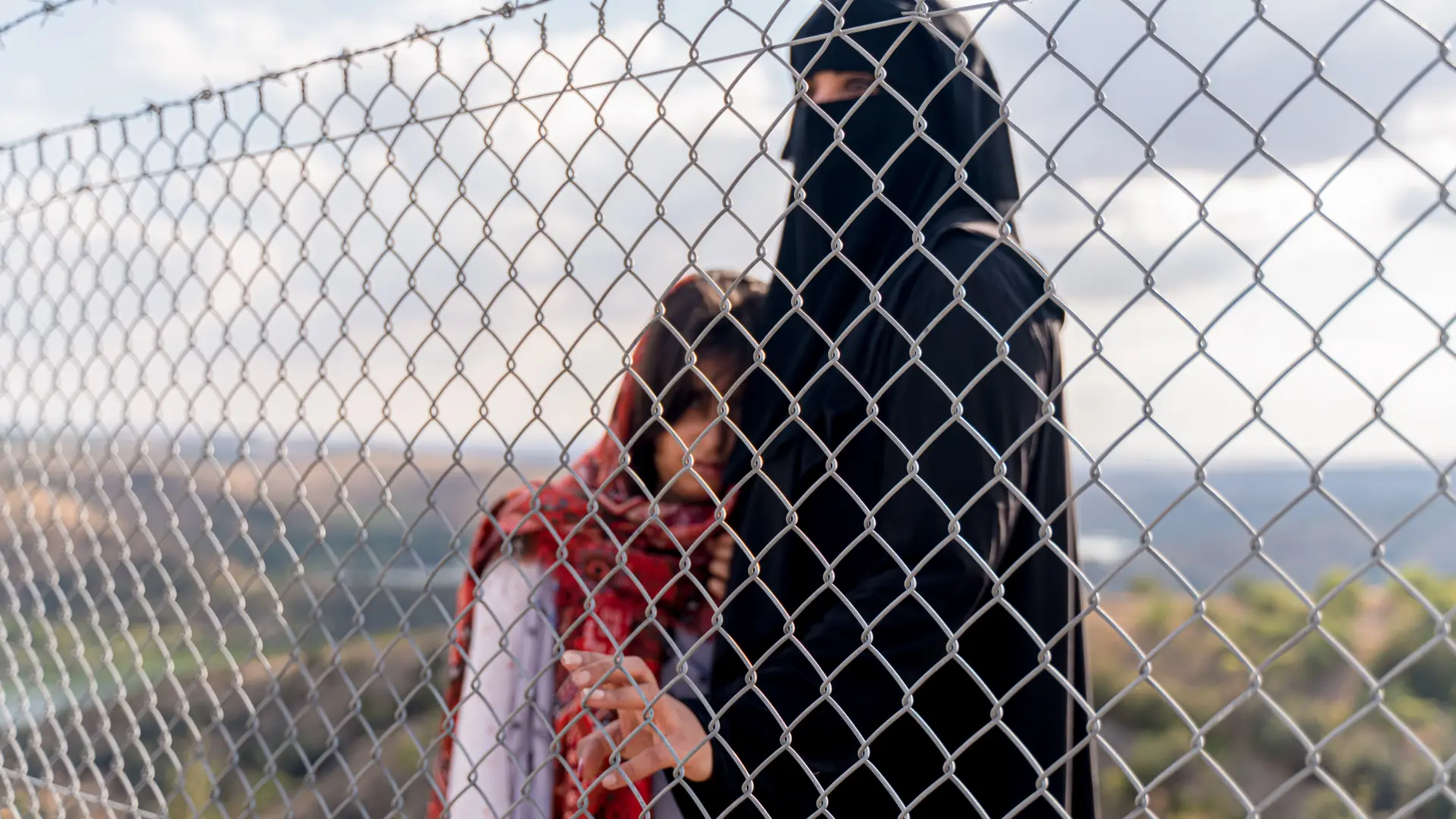
I met Mahtab Eftekhar through a WhatsApp message. What I felt at that first contact was we shared deep painOr a quiet but powerful bond: separation from our childrenthe constant fight to protect ourselves, and our experiences as women marked by violence and injustice.
Mahtab is not just a suffering mother. She’s a brave woman who decided to speak outeven in front of the world. She was one of the witnesses who took part in the popular tribunal in Madrid. He condemned the abuse and violence he faced throughout his life under the Taliban regime.. His videotaped testimony moved me deeply. Because it reflects a pain that I know all too well.
Mahtab’s story begins with a stolen childhood. Her father died when she was only one year old, and from the age of four she was forced to work as a carpet maker to help support her family. At the age of 10 she was already an expert weaver.Although he also attended school, his life was marked by poverty and the burden of child labor. She dreamed of becoming a TV presenter and practiced in front of the mirror, imagining a different future. But that future never came. At the age of 10, she was forced to marry a young and violent man.given as payment for family debts. During her child marriage, Mahtab suffered physical and psychological abuse. The blows were constant and the terror continued daily. for the first few years She gave birth to several children, but almost all of them died. Shortly after birth due to malnutrition and lack of medical care. Only his fourth daughter, Zahra, survived. That girl became his reason for living and became his strength. It was Zahra’s fault that Mahtab took his daughter to Kabul to save her and decided to run away from home.
A new level of struggle began for her as she worked as a seamstress and make-up artist to support her family, educate her daughter, and above all, survive. However, the environment remained harsh. Her husband abused her, controlled her, and forbade her to talk about what she was experiencing. Still, Mahtab did not give up. I wanted Zahra to have a different childhood, to be able to study and dream. He bought them books on human rights and taught them to read and write with love and patience. Mahtab found strength in her love for her children, even as she faced back pain and heart problems with every stitch of cloth she sewed. Mahtab, 27, currently lives in one of the European countries.. She spent three years trying to rebuild her life without contact with her daughter or son, working as a seamstress to cover necessities like food, shelter, and medicine. Her 13-year-old daughter, Zahra, should be attending school, but the Taliban regime prohibits her from doing so. Her ex-husband and paternal family want to force her to marry a relative and repeat the tragedy that characterized her mother’s childhood.
Mahtab fears her every day but continues to resist.Zahra continues to dream of somehow escaping this imposed fate. His story is not an isolated case. It represents the reality of thousands of Afghan women Caught between violence, poverty, and oppressive policies, people struggle to maintain hope.
In my conversation with her, I recognized my own pain reflected in hers. The despair of being separated from our children, the helplessness in the face of a system that denies us our rights, and at the same time the inner strength that only a mother can understand. When Mahtab spoke in a Madrid courtroom, her voice trembled, not from fear but from the feeling that her voice was being heard. He told his story with a mixture of pain and dignity. He wanted justice, not pity. Her testimony was both a condemnation and a promise that no woman or girl should live like her.
Battle of Mahtab crosses Afghanistan border. This is the story of all the women who decided to speak out despite being silenced. Her resilience shows that resistance doesn’t always manifest in grandiose acts, but in everyday acts of love, like sewing to survive, raising a daughter, and moving on when all seems lost. As a woman who has experienced separation from her children, I know this too. no deep pain than the forced distance between mothers and children. But I also know that a mother’s love never fades. That love inspires us to fight and speak without giving up.
In Mahtab’s every word, I felt the strength of all women who rise up from pain. Mahtab taught me a phrase that sums up his entire life. This phrase still resonates with me. «فرزندانم، من شما را هیچگاه فراموش نکردهام و برای شما میجنگم. I agree. ” (“Children, I have never forgotten you. I will fight for you. I love you.”) His voice was broken, but there was light in his words, a promise of hope. These words belong not only to her, but to all mothers who continue to love unconditionally in the midst of exile, war, and violence.
Mahtab Eftekhar’s story is a testament to resilience and steadfast love. At 27 years old, she went through what many people would not endure in a lifetime. Still, he continues to write while dreaming. Their fight is all of us’s fight.The images of women who refuse to disappear, and the images of mothers who continue to fight for their children even though they are hurt.



